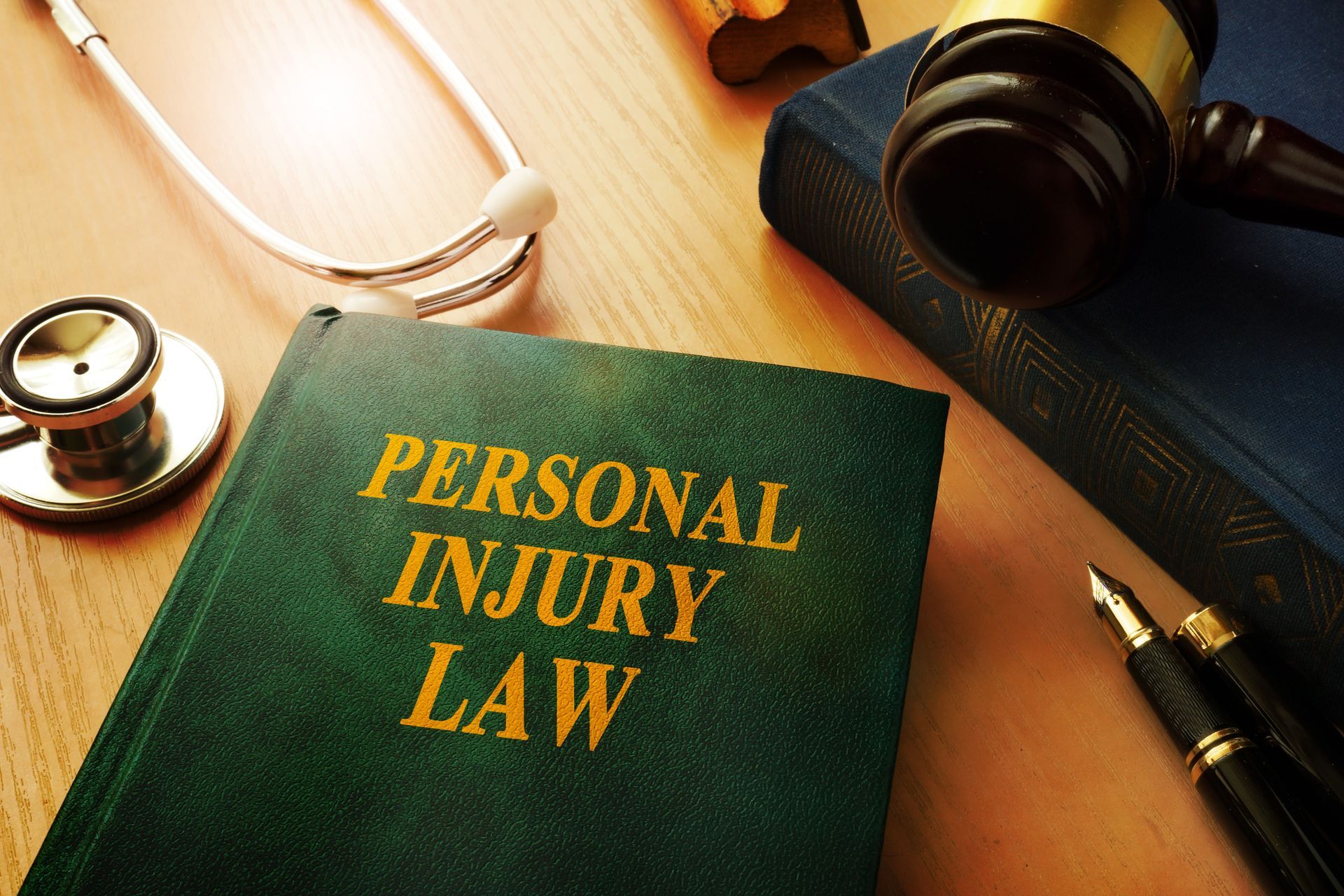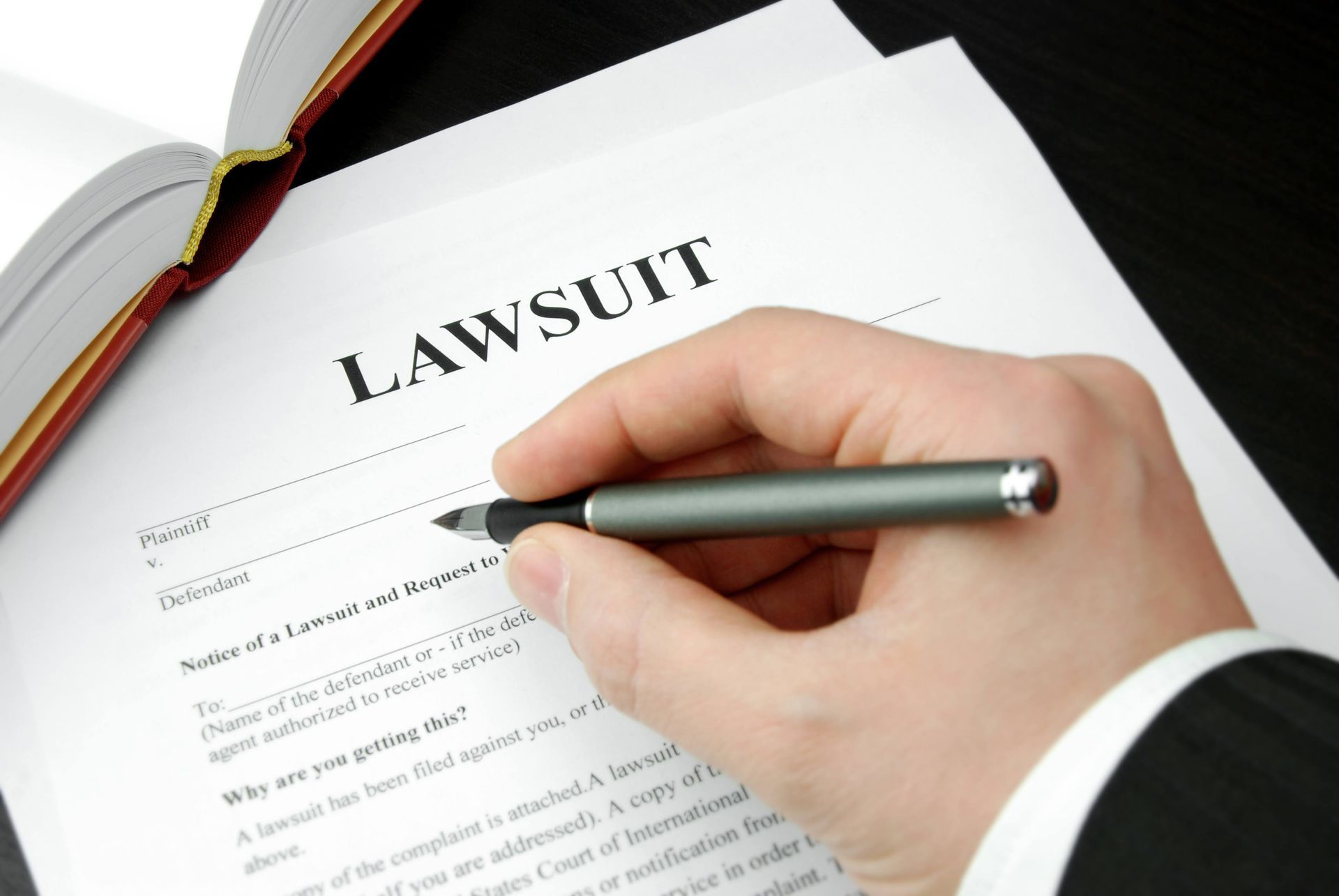5 Reasons an Insurance Company Might Deny Your Personal Injury Claim
August 9, 2022

If you have ever filed a claim for personal injury compensation with an insurance company, you might wonder why the company would deny your claim. Insurance corporations offer numerous reasons to reject any claims you forward for compensation, some of which might be legitimate due to a lack of adequate information from the claimant's side.
These five reasons explain why insurance companies deny most personal injury claims and may help you avoid any future claims obstructions if you follow the advice mentioned.
You might feel physically and psychologically drained after experiencing an accident and justify that it is better to rest, recover, and file your claim later. Arguably, an insurance payout helps alleviate any monetary stress you might incur during your recovery process. Therefore, receiving any amount to compensate for your financial loss will offset any costs regardless of the time it takes to receive such funds.
However, you might fail to receive any compensation if you wait too long to file your claim, denying any chance at a healthy compensation that might assist you. In most states, you have two years from the date of the accident to file a personal injury claim. If you wait longer, the insurance company will almost certainly deny your claim.
Visit a doctor immediately after an accident to receive a professional assessment of the damage extent and severity. A personal injury claim becomes legitimate if there was significant damage that impacted your economic abilities.
Many people may fail to realize the importance of this examination as it creates a documented trail to highlight any injury claims. Therefore, seek medical attention after an accident even if you don't think you're injured.
The insurance company might not believe your injuries are as severe as you claim. Insurance companies often hire doctors to evaluate claimants and determine the extent of their injuries. If the insurance company's doctor says your injuries are not as severe as you claim, the insurance company will likely deny your claim.
Ensure you receive a second opinion from an accredited medical institution or physician. If your doctor agrees that your injuries are severe, the insurance company will have a more challenging time denying your claim.
A pre-existing condition is a medical condition that you were diagnosed with before the accident. If a doctor has told you about your pre-existing condition, it could be used against you if an insurance company denies your personal injury claim.
If you have a pre-existing condition, the insurance company may try to argue that your injuries are unrelated to the accident. For example, if you have a history of back problems and injure your back in an accident, the insurance company may argue that your back problems are not related to the accident.
Request a letter from your doctor stating that your injuries emanated from the accident. This document will help prove that the accident and the injury correlate regardless of any pre-existing conditions.
You must prove that the other party, who is the insurance holder, was at fault for the accident to win a personal injury claim. If the insurance company doesn't believe that the other party was at fault, the insurance company will likely deny your claim.
Therefore, you should gather evidence to prove that the other party was at fault for the accident. When you contact your lawyer, you can include witness statements, photos, and video footage or request an investigation. If an accident caused any physical or emotional damage to you, you should speak with a lawyer to help you understand what happened and how to proceed with the claim process. These five tips can help you know the significant reasons for the denial and prepare you to take legal action.
Contact us at Schonberg Law Offices if you require assistance to file and secure a personal injury claim with your own insurance company or the liable party's insurance company.
These five reasons explain why insurance companies deny most personal injury claims and may help you avoid any future claims obstructions if you follow the advice mentioned.
1. Expiry of Statute of Limitations
You might feel physically and psychologically drained after experiencing an accident and justify that it is better to rest, recover, and file your claim later. Arguably, an insurance payout helps alleviate any monetary stress you might incur during your recovery process. Therefore, receiving any amount to compensate for your financial loss will offset any costs regardless of the time it takes to receive such funds.
However, you might fail to receive any compensation if you wait too long to file your claim, denying any chance at a healthy compensation that might assist you. In most states, you have two years from the date of the accident to file a personal injury claim. If you wait longer, the insurance company will almost certainly deny your claim.
2. Lack of Documented Physician Assessment
Visit a doctor immediately after an accident to receive a professional assessment of the damage extent and severity. A personal injury claim becomes legitimate if there was significant damage that impacted your economic abilities.
Many people may fail to realize the importance of this examination as it creates a documented trail to highlight any injury claims. Therefore, seek medical attention after an accident even if you don't think you're injured.
3. Mild Injury Compared to the Company's Assessment
The insurance company might not believe your injuries are as severe as you claim. Insurance companies often hire doctors to evaluate claimants and determine the extent of their injuries. If the insurance company's doctor says your injuries are not as severe as you claim, the insurance company will likely deny your claim.
Ensure you receive a second opinion from an accredited medical institution or physician. If your doctor agrees that your injuries are severe, the insurance company will have a more challenging time denying your claim.
4. Pre-Existing Medical Conditions Unrelated to the Accident
A pre-existing condition is a medical condition that you were diagnosed with before the accident. If a doctor has told you about your pre-existing condition, it could be used against you if an insurance company denies your personal injury claim.
If you have a pre-existing condition, the insurance company may try to argue that your injuries are unrelated to the accident. For example, if you have a history of back problems and injure your back in an accident, the insurance company may argue that your back problems are not related to the accident.
Request a letter from your doctor stating that your injuries emanated from the accident. This document will help prove that the accident and the injury correlate regardless of any pre-existing conditions.
5. Insufficient Proof of the Other Party's Involvement
You must prove that the other party, who is the insurance holder, was at fault for the accident to win a personal injury claim. If the insurance company doesn't believe that the other party was at fault, the insurance company will likely deny your claim.
Therefore, you should gather evidence to prove that the other party was at fault for the accident. When you contact your lawyer, you can include witness statements, photos, and video footage or request an investigation. If an accident caused any physical or emotional damage to you, you should speak with a lawyer to help you understand what happened and how to proceed with the claim process. These five tips can help you know the significant reasons for the denial and prepare you to take legal action.
Contact us at Schonberg Law Offices if you require assistance to file and secure a personal injury claim with your own insurance company or the liable party's insurance company.











